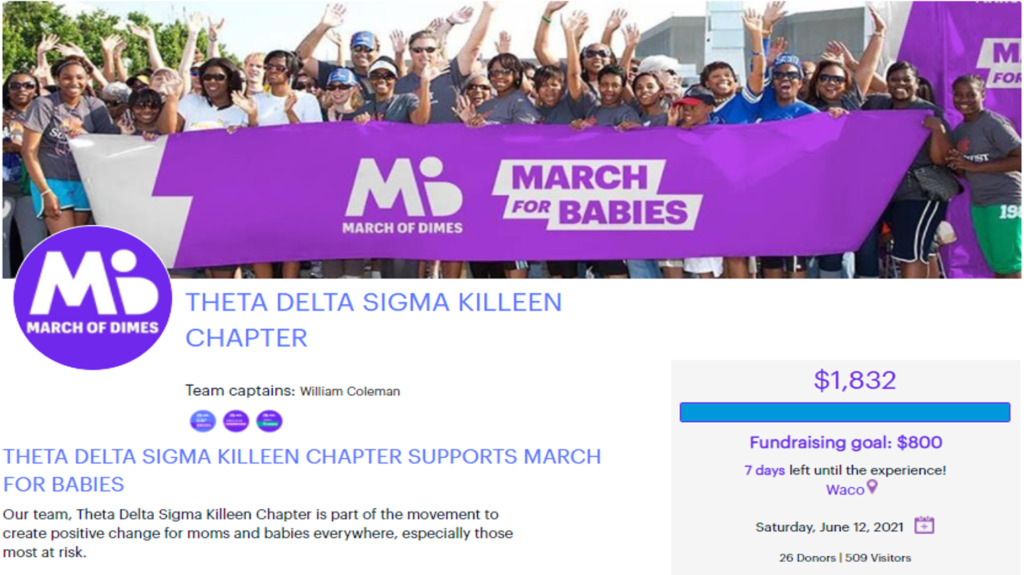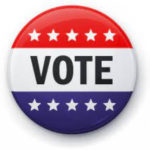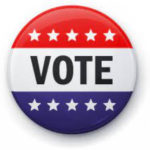
Social Action Message
Formed in 1934, the Social Action program was conceived by Bro. Elmo M. Anderson to focus on improving the general wellbeing of disenfranchised people. The mission of the International Social Action Program is to encourage social, political and philanthropic leadership which strengthens our respective communities and our membership by: educating fraternity members on health issues affecting them and their families, increasing visibility and sense of self-worth through serving in the community, providing education/information about political and community issues, and increasing awareness of the legislative process, involving the membership in fundraising activities that support organizations sharing our vision, promoting health awareness to encourage prevention of health challenges and promote health maintenance.
Respectfully,
Bro Kenneth Davis
Director Social Actions
Theta Delta Sigma Chapter



Sigma Wellness

Sigma Wellness focuses on Mental Health Programs, Disease Prevention Programs and is our men’s health initiative designed to educate and inform our membership and the community about key health issues facing men of color. Engaging our communities through dialogue about the overall quality of health and solutions to improve our well-being as men by addressing:
Living Healthy: Diet and Nutrition
Living Fit: Obesity and Weight Control
Living Responsible: Reducing your Cancer Risk
Living Risk-Free: Sexual Health
Living Balanced: Spiritual and Mental Health
Sigma Advocacy
Sigma Advocacy is an initiative designed to focus on building our collective voice around legislative policies that impact our communities locally, statewide and nationally. Supporting the publics concern for a particular cause or policy, chapters are encouraged to host or attend local town halls to address any issues impacting the community. Engagement through events like:
- PROJECT VOTE
- Sigma Week On Capitol Hill
- Sigma Day at the State Capitol
Project Vote
VOTER EDUCATION
Our Social Action program will work to find ways to educate voters on critical issues in the electoral process, candidates, as well as public policy issues. Fraternities are encouraged to incorporate the following action steps:
• Sponsor virtual candidate forums to educate the public about candidates
• Educate the community on voting procedures particularly in the areas of absentee voting through your local election board
• Partner with local organizations that monitor public policy issues
• Utilize social media to educate and inform voters of their rights and responsibilities
VOTER REGISTRATION
Our Social Action program will work to establish a voter registration goal for key geographical areas with a special emphasis on registering Black Men to vote. Fraternities in select cities with the highest number of voter disenfranchisement amongst Black men will work collaboratively with community partners to register more African American voters, especially Black men.
VOTER MOBILIZATION/GOTV
Our Social Action program will use their resources to establish carpools to help get voters to the poll and volunteer to serve as poll workers. Fraternities will also execute the following:
• Participate in canvassing, door knocking, and dissemination of information.
• Work with local churches and community-based organizations to mobilize voters to the polls.
• College and Alumni work closely together to mobilize students and get them to the polls.
• Volunteer to serve as poll workers on election day.
• Coordinate phone banking efforts to encourage voters to turnout.
VOTER REGISTRATION/POLLING LOCATIONS
• Check your registration status at Vote.org
• If you are not registered to vote, go to vote.gov to find your options, which may include online registration depending on your state.
• States have different voter registration deadlines and requirements, so make sure you are registered well in advance of Election Day.
• Find your polling place or vote center and its hours of operation. Due to COVID-19, some polling places have moved in an effort to accommodate social distancing. Check your assigned polling place prior to election day. In some cases, your college or university may be a polling place; if you are from out of state or
county and intend to vote in-person, be sure you are registered under your current address, i.e. your campus housing, not your home address.
EARLY VOTING
• Early voting reduces long lines on Election Day, facilitates an easy voting process, and lessens the burden on election officials and staff.
• Classes and extracurriculars can make voting on Election Day difficult. By voting early, you can choose from a range of dates and cast your ballot when it’s most
convenient.
• Learn more about early voting in your state.
ABSENTEE/VOTE-BY-MAIL
• If you are unable to cast a vote in-person, you may be able to vote absentee. Rules and requirements for vote-by-mail vary from state-to-state. If you wish to
cast a ballot in your home state rather than the state you attend school in, this may be an option for you.
• If you vote-by-mail, we recommend that you turn your ballot in well before election day due to possible postal service delays.2
• Learn about your options to vote-by-mail/absentee in your state.
2021 March of Dimes Fundraiser







